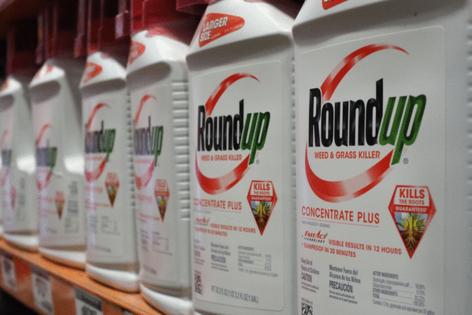Bayer asks high court to take $1.25 million Roundup appeal
Published in News & Features
Bayer AG said it’s seeking a U.S. Supreme Court review of litigation over the weedkiller Roundup, its latest effort to get beyond a mountain of legal woes.
The German conglomerate asked the high court Friday to take its appeal of a 2023 verdict from a St. Louis trial in which a jury ordered Bayer’s Monsanto unit to pay $1.25 million in compensatory damages to cancer sufferer John Durnell, according to a statement. No punitive damages were awarded in the case.
After seven years of fighting Roundup cases in the U.S., Bayer is still facing about 67,000 claims from plaintiffs who allege Roundup caused their cancer. Bayer inherited the weedkiller in its $63 billion acquisition of Monsanto in 2018. It insists the product is safe.
Bayer’s filing wasn’t immediately visible on the Supreme Court’s public docket. There’s typically a delay between when a petition for review is submitted and it being formally docketed and made public by the U.S. high court.
The company has set aside $16 billion to deal with a wave of Roundup verdicts and settlements. It’s already spent $10 billion. Last month, a state-court jury in Georgia ordered Bayer to pay more than $2 billion to a man who blamed his Non-Hodgkin’s Lymphoma on Roundup use. Bayer will appeal the verdict.
Bayer argues a favorable high court decision could largely curtail the litigation against it. However, Bloomberg Intelligence analyst Holly Froum has estimated the remaining Roundup cases could cost Bayer as much as $8 billion more to resolve.
Conflicting decisions
In the filing provided by Bayer, the company cites conflicting decisions from U.S. appeals courts over whether federal laws regarding product safety should preempt state-based claims tied to a lack of warnings about potential safety issues with products.
The U.S. Environmental Protection Agency has said that there are no risks of concern to human health when glyphosate, the active ingredient in Roundup, is used “in accordance with its current label.”
Most of the lawsuits claim Monsanto either knew or should have known Roundup can cause cancer and didn’t warn users. The Roundup litigation has weighed heavily on Bayer’s stock, which is down 27% over the past 12 months, and prevented Chief Executive Officer Bill Anderson from tackling myriad other challenges at the company, including whether its conglomerate business model still makes sense.
In Durnell’s case, jurors rejected Bayer’s arguments that federal law preempts Missouri’s failure-to-warn statute and a state appeals’ court backed up the jury’s finding in February. Durnell, who began using the weed killer in 1996, later was diagnosed with Non-Hodgkins Lymphoma, a disease researchers have linked to the product. Jim Onder, one of Durnell’s lawyers, didn’t immediately return a call Friday for comment on Bayer’s appeal request.
The state appeal’s court case was Durnell v. Monsanto, No. ED 112410, Missouri Court of Appeals, Eastern District (St. Louis).
©2025 Bloomberg L.P. Visit bloomberg.com. Distributed by Tribune Content Agency, LLC.







Comments